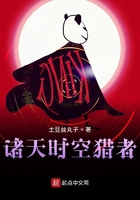Mark Twain,as you know,which was famous in his day as a public speaker.In his public speeches he always liked to tell funny stories.
He also liked to listen to funny stories and to play jokes on his friends.One day one of his friends lost his wallet and asked Mark Twain to pay his train fare for him.
“But I don't have enough money to pay both your fare and my fare.”Mark Twain said.The friend didn't know what to do.
“We can do this.”Mark Twain said,“We can get on the train and when the conductor comes to check the ticket,you can hide under my seat.”
Later,however,when the conductor came to check the tickets,Mark Twain gave him two tickets-one for himself and one for his friend.Then he explained in loud voice,“My friend here is a strange man.When he travels on a train,he does not like to sit on the seat.He prefers to lie on the floor under the seat.”Of course,everyone in the train looked at the poor friend under the seat and laughed at him.
众所周知,马克·吐温是一位著名的演讲家。在他的演讲中,他经常喜欢讲笑话。
他也喜欢听笑话,和朋友开玩笑。有一天,他一位朋友的钱包丢了,希望马克·吐温能帮他买火车票。
“但是我的钱不够买两个人的火车票啊”,马克·吐温说。朋友不知所措。
“咱们可以这样”,马克·吐温说,“咱们先上车,等售票员来了之后你就藏在我的座位下面。”
然而,当售票员过来查票时,马克·吐温却给了他两张票——一张他自己的,一张朋友的。他大声解释到:“我的朋友是个怪人。他坐火车的时候,不喜欢坐在座位上。他更喜欢躺在座位下的地板上。”当然,火车上的每个人都望着座位下这位可怜的朋友,拿他当笑料。
1.wallet n.钱包,皮夹
E.g.We found a wallet on the street.我们在街上发现了一只钱包。
2.fare n.旅费;车费;船费;飞机票价
E.g.How much is the fare?车费是多少?
3.conductor n.(公共汽车、电车等的)售票员
E.g.The bus conductor takes up the tickets strictly.
这位公共汽车乘务员收票很严格。
4.however conj.可是,然而
E.g.At first he insisted on the accuracy of his account,however,he agreed with what I said.
一开始他坚持他的说法准确,可他还是同意了我的论点。
5.strange adj.陌生的;奇怪的;外行的
E.g.There she stopped,listening to the strange sounds.
她停住了脚步,倾听着奇怪的声音。
1.as you know如你所知;正如你知道的
E.g.As you know,Stone finally married with his secretary.
你知道吗,斯通最终和他秘书结婚了。
2.play jokes on 戏弄
E.g.People often play jokes on him about his baldhead.
人们经常拿他的秃脑袋开玩笑。
3.laugh at 嘲笑,因……而发笑
E.g.The students laughed at the funny story.
听了那个有趣的故事,学生们都笑了起来。















